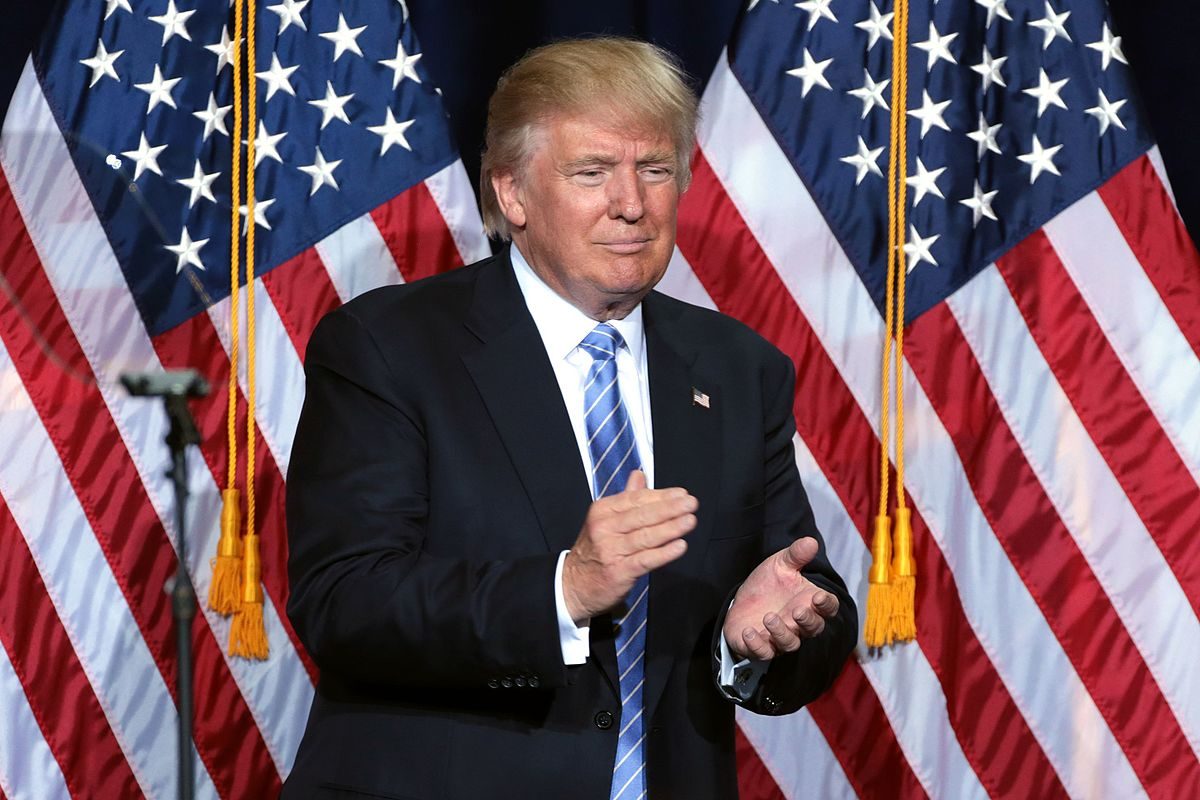Trump expands ban in the US
Donald Trump speaking to supporters at an immigration policy speech at the Phoenix Convention Center in Phoenix, Arizona. //Photo courtesy Gage Skidmore
On Sunday, Sept. 24, the restrictions of the travel ban issued on Jan. 27 were set to expire. Instead, the Trump administration announced an expansion of the travel ban to eight different countries.
The travel ban initially placed restrictions on visitors from six majority-Muslim countries including Syria, Iran, Libya, Somalia, Sudan and Yemen. As part of this new expansion, travel restrictions on Sudan were removed and added on the countries of Chad, North Korea and Venezuela. In contrast with the first six countries that were part of the travel ban, these recent additions are not majority-Muslim.
“Six countries in the original ban are Muslim,” wrote Jane Fernandes, president of Guilford College, in an email interview with The Guilfordian. “Adding North Korea and Venezuela cannot mask that the U.S. government’s order is still a Muslim prohibition, and the new version adds insult to injury by alienating people based on national origin, an unlawful proposition.”
“Making America Safe is my number one priority,” President Trump tweeted on Sept. 24 regarding the travel ban expansion. The administration implemented the travel restrictions with the goal of preventing terrorists’ entry into the U.S.
However, some believe the travel ban does not accomplish this goal.
“Blocking some people entering the country for a short term … I don’t see that as the solution at all,” said Zhihong Chen, assistant professor of history. “It will only provoke more animosity from the people in these affected regions, and it will mainly affect people who are really, really innocent. Yes, there are some terrorists who have done terrible, terrible things. To harm innocent people is unacceptable, but I think most of the people who come here … seek better lives, to unite with family, to further (their) education.
“And the ban just kind of tears family apart and blocks everything.”
Since the announcement of the expansion, members of the Guilford community have been divided on support for it. Senior Patrick Cassidy expressed that individuals should take more time to consider the travel ban’s intentions.
“I think there are questions we need to ask ourselves about this topic,” Cassidy wrote to The Guilfordian. “We don’t want to cause any injustice, but at the same time we don’t want to be destroyed. America is our home, and if there is a threat to your home, you got to be willing to do what it takes to protect it.
“Maybe instead of attacking the idea of the ban, maybe we should develop a reasonable solution. Something we all can get behind. Find the common ground on the issue by asking the overall question … How do we protect ourselves from those who want to do us harm without showing injustice to those who just want to come and live in peace?”
While a ban may prevent potential threats from entering the U.S., it also may limit educational opportunities for international scholars who had hoped to come to the U.S. and hinder the American education system as a whole.
“American higher education is impoverished when we ban whole populations from whole countries from entering,” wrote Fernandes. “Those intellectuals are now applying to Canada, the United Kingdom, Australia, New Zealand and other English speaking countries. Those countries are aggressively recruiting international scholars to draw the best and brightest scientists and innovators from around the world.
“Our ability to serve an increasingly global society is suffering in this process.”
Unexpected changes such as the travel ban expansion emphasize the volatile nature of the current political system causing citizens to be more aware of the global political climate.
“We must carefully watch developing issues and gauge their potential to impact Guilford College and our students,” wrote Fernandes. “We will remain vigilant in protecting and serving our students with an excellent education so they will have the options that empower them to thrive and help us solve the world’s problems.”









